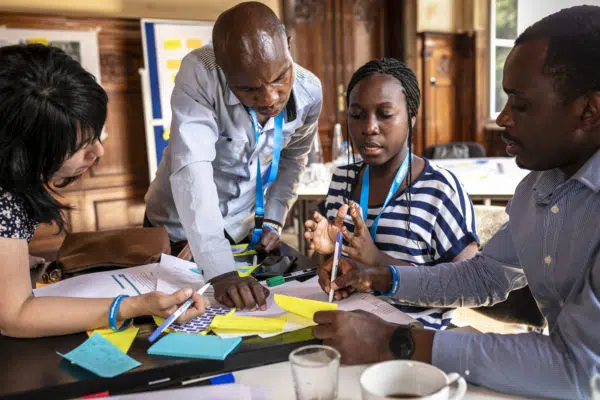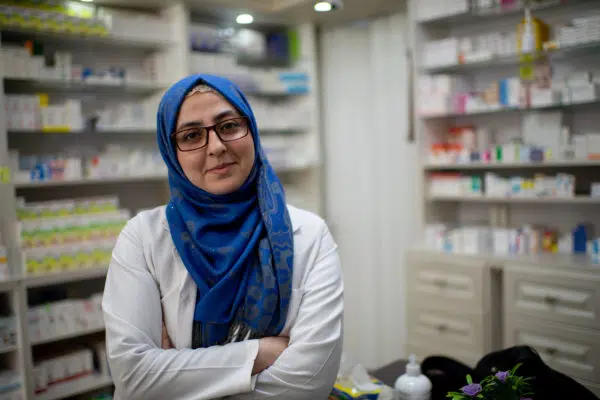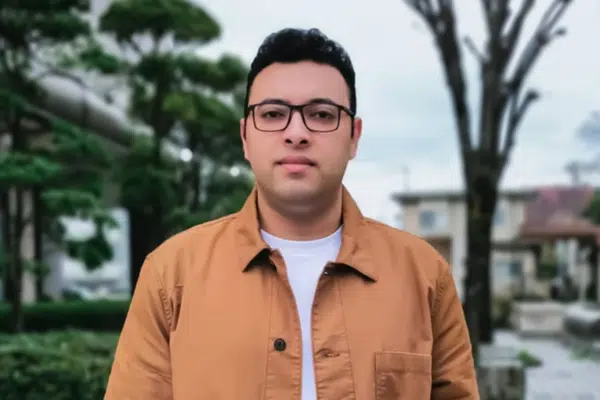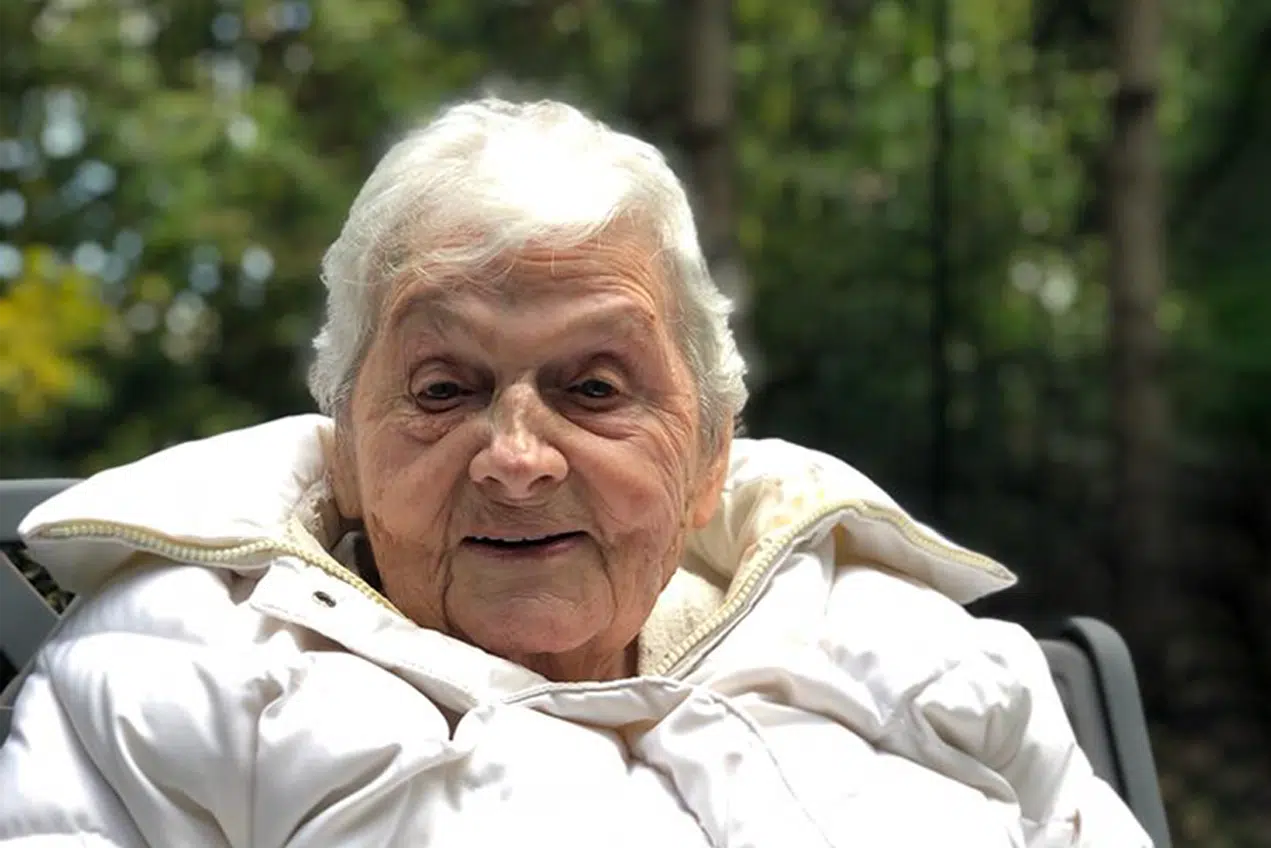
Portrait of Helga Loevinsohn. © Photo courtesy of the Loevinsohn family
At 98 years old, Helga shares her experience of becoming a refugee, first escaping Germany to find safety in England and later settling in Canada
By Rohan Stritch
Together with the support of her sons, Helga has decided to gift the compensation she’s received from the German government to UNHCR’s Aiming Higher campaign to help young refugees reach higher education, build new lives, and thrive – as she was able to do.
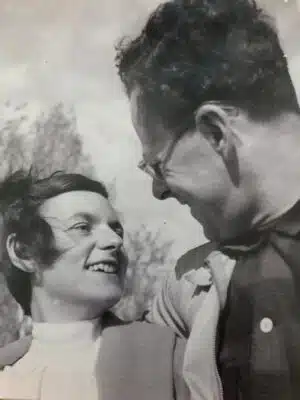
Helga’s first Laurentian summer, with Walter – 1947. © Photo courtesy of the Loevinsohn family.
Escaping Germany in May, 1939, at the age of 14, the Kindertransport (‘children’s transport’ in German) was an organized rescue effort that took Jewish and Roma children (but not their parents) away from Nazi-controlled territory. Supported by the British government, and Jewish and non-Jewish organizations, from December 1938 until May 1940, the Kindertransport brought about 10,000 children to safety in England.
The children were typically placed in British foster homes, hostels, schools and farms. In many cases, they would become the only members of their families to survive the Holocaust. Helga, unlike many of the Kindertransport children, had distant relatives in Manchester who acted as her guarantor. She was also fortunate in that her mother, Martha, was later able to join her.
Helga and Walter would go on to raise three boys, Michael, Ernie and Benjamin, in Côte Saint-Luc, on the western side of Montreal. Her son Michael shares that they learned to love Laurentian lakes, wild berries and cross-country skiing. Later all three sons would dedicate themselves in different ways to supporting sustainable development work around the globe.
Today, Helga is a Great Grandmother, though she prefers to keep the title of Grandmother.
In her adult life, Helga studied Economics, first by distance through the London School of Economics, and later she concluded her Bachelor’s degree at McGill University. Pushing forward, she went on to obtain a Master’s degree in Economics from Columbia Pacific University. Helga was employed by the Federal Government in the former Department of Manpower and Immigration and was responsible for labour predictions and forecasting demand. Eventually, she became an Independent Consultant, working well into her 70s.
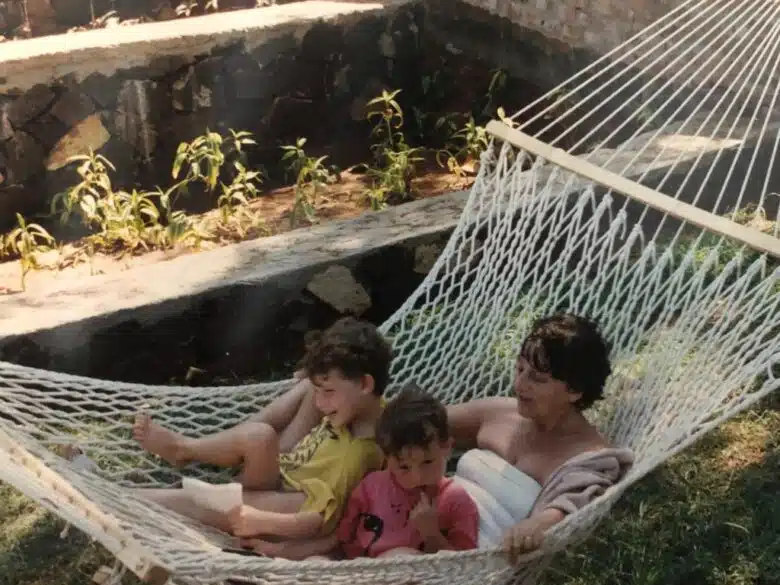
Helga and her grandchildren, Gideon and Daniel. © Photo courtesy of the Loevinsohn family.
Now in her golden years, Helga has received two compensation payments from the German government as one of the few surviving Kindertransport children. Having read a personal account shared by UNHCR Canada from a Syrian refugee scholar who is currently studying in Iraq, she was inspired to gift these payments to UNHCR’s refugee scholarship program.
Helga says she made the decision because she’s been through the same experience and knows how it feels to be a refugee.
When asked if she thinks other Canadians can also contribute, Helga encourages everyone to get involved. If they have the means, “Yes,” she says. “Definitely, they should support.”
As we close our conversation, a Care Aid joins our call. Cynthia, who is helping to take care of Helga, also happens to be a refugee from Zimbabwe. She shares how impressed she was by Helga’s donation and the UNHCR refugee scholarship program. Encouraged by Helga’s commitment to supporting other refugees, Cynthia now plans to support the Aiming Higher campaign as well.
The ripple effect of goodwill continues.



